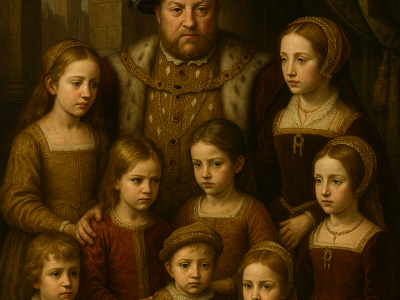Elon Musk has once again made headlines, but this time, it is not about Tesla, SpaceX, or artificial intelligence. The billionaire entrepreneur has welcomed his 14th child with Neuralink executive Shivon Zilis. The child, named Seldon Lycurgus, adds to Musk’s already extensive family, reigniting discussions about large families, population concerns, and the psychological implications of raising numerous children. His approach to billionaire family dynamics has sparked curiosity worldwide.
This announcement, made by Zilis on social media, was met with mixed reactions. Some congratulated the couple, while others questioned the feasibility and ethics of raising so many children, even for one of the world’s richest men. Musk, a vocal proponent of increasing birth rates, has previously stated that declining population growth is a far greater threat to civilisation than climate change. But does his personal philosophy align with the realities of family life? This debate is crucial amid the ongoing declining birth rates crisis.
The meaning behind seldon lycurgus
The choice of name reflects Musk’s deep-rooted passion for science fiction and history. Seldon is a nod to Hari Seldon, the protagonist in Isaac Asimov’s Foundation series. In the books, Seldon is a mathematician who develops psychohistory, a statistical science that predicts the future of large populations. The second name, Lycurgus, refers to the legendary Spartan lawmaker who established the military-oriented structure of ancient Sparta.
This is not the first time Musk has selected unconventional names for his children. With names like X Æ A-12, Exa Dark Sideræl, and Techno Mechanicus, he has shown a consistent fascination with futuristic and intellectual themes. But beyond the symbolism, the naming trend speaks to Musk’s broader worldview. His admiration for Seldon’s ability to predict societal outcomes suggests an interest in shaping the future, both through his work and his legacy.
The psychology behind large families
Musk has often expressed that he wants to have as many children as he can responsibly care for. While the logistics of raising 14 children would be daunting for most, the billionaire’s financial resources allow for extensive support systems, including nannies and tutors. But beyond economics, what drives individuals to have large families?
Psychologists suggest that motivations can vary widely. Some parents find joy in raising children, viewing each child as an opportunity to extend their legacy. Others come from large families themselves and wish to recreate the experience. In Musk’s case, his frequent references to the dangers of population collapse suggest a more strategic motivation. His belief in large families appears to be as much about global demographics as it is about personal fulfilment.
However, having many children does not automatically equate to a nurturing environment. Large families can foster strong sibling bonds and a sense of community, but they also risk parental burnout, divided attention, and emotional strain. As one Quora user wrote in response to the news, “A big family is a beautiful thing, but only if each child gets the love and time they deserve.”
Economic and cultural factors influencing family size
Historically, large families were common due to economic necessity. In agrarian societies, children contributed labour to farms and household duties. Even in industrialised nations, pre-welfare state policies meant that children were seen as security for old age. Today, most high-income nations experience lower birth rates, while developing countries still see larger families due to cultural and economic factors.
Musk’s approach is unusual among the ultra-wealthy. Most high-net-worth individuals tend to have fewer children, focusing on intensive parenting strategies that ensure maximum opportunities for each child. In contrast, Musk promotes the idea that the survival of civilisation depends on reversing declining fertility rates. This stance aligns with recent discussions in policy and economics, as nations like Japan and South Korea grapple with falling birth rates and ageing populations. This issue highlights the broader concerns surrounding the declining birth rates crisis.
The ethics of having many children
While Musk’s financial means ensure that his children will never lack material comfort, ethical questions remain. One of the main concerns is the ability to provide adequate parental attention. Research suggests that children in large families often receive less one-on-one time with their parents, which can impact emotional development.
Another ethical issue is environmental. Critics argue that promoting large families in an era of climate change and resource depletion is irresponsible. Every additional person adds to global consumption, and some worry that Musk’s advocacy for increased birth rates contradicts sustainability goals. Others counter that technological advancements, including those pioneered by Musk himself, may mitigate these concerns.
Historical figures with large families
Throughout history, influential leaders and monarchs have had large families, often for political, economic, or religious reasons. King George III of Britain had 15 children, aiming to secure the royal lineage. Similarly, Charlemagne, the medieval emperor, had at least 18 children from multiple wives and concubines, strengthening his empire through strategic marriages.
In more recent history, Joseph P. Kennedy Sr., the patriarch of the Kennedy family, had nine children, many of whom went on to shape American politics. His family became a dynasty, illustrating how large families have historically been used to consolidate influence and power. However, conflicts within such families were common. Succession disputes, rivalries, and differing ideologies often caused internal strife. Even in Musk’s case, his children’s futures remain uncertain, will they follow his path or seek their own? The study of large families in history reveals patterns of power, legacy, and conflict.
While some advocate for higher birth rates to sustain economic growth, we must also consider the environmental and social responsibilities of parenting.
-Prof. Sarah Harper
Religion and the value of large families
Many religious traditions view large families as a blessing and a moral duty. In Christianity, the Bible encourages procreation, with passages like “Be fruitful and multiply” serving as a foundation for family values. Catholicism, in particular, opposes contraception and promotes the idea of raising multiple children within a faith-based household.
Islam also places great importance on family, with children seen as a source of spiritual reward. In many Muslim-majority countries, large families are encouraged, partly due to religious beliefs and partly due to cultural norms. Similarly, in Judaism, the concept of pru urvu (be fruitful and multiply) is a core principle, reinforcing the idea that raising children is both a religious and communal responsibility.
While Musk does not appear to be deeply religious, his advocacy for population growth echoes values found in many religious doctrines. His views align more with the demographic concerns of faith-based communities than with the secular trend of smaller families in developed nations. However, whether Musk’s children will carry forward his vision remains uncertain. His ideas contribute to the ongoing discussions on ethical parenting in modern society.
Contrasting approaches to family and legacy
Donald Trump, the former US president, has five children from three marriages. His approach to family reflects a more traditional American model of legacy-building, where wealth and influence are passed down through business and politics. His children, Donald Jr., Ivanka, Eric, Tiffany, and Barron, have played various roles in his political and corporate ventures. Unlike Musk, Trump has not advocated for large families as a solution to demographic decline. Instead, his focus has been on dynasty-building through influence, wealth, and political power. His family structure highlights how inheritance and strategic positioning can shape leadership succession.
In contrast, Indian Prime Minister Narendra Modi has no children. His political philosophy emphasises national development over personal legacy. Modi’s leadership has been marked by a focus on economic reforms, nationalistic policies, and demographic management. While he has spoken about the importance of family values, his own life reflects a departure from traditional familial expectations. His lack of direct heirs places him in contrast to figures like Musk and Trump, raising questions about how leadership, influence, and legacy can be built outside of familial structures.







